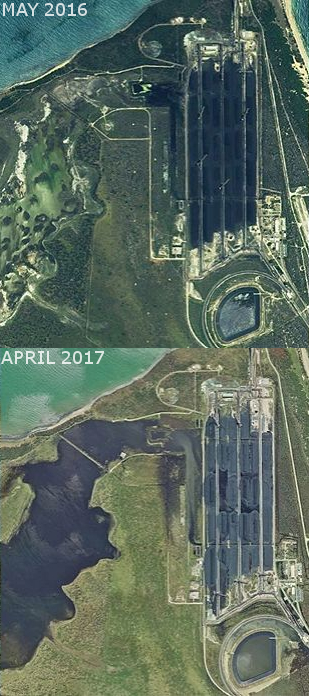Adani spill details revealed
 Conservationists have gained access to documents that coal giant Adani tried hard to keep hidden.
Conservationists have gained access to documents that coal giant Adani tried hard to keep hidden.
The documents and emails obtained by the Mackay Conservation Group through freedom of information laws relate to the risk of pollution from Adani’s coal export terminal at Abbot Point near Bowen.
The issue emerged around the time of Cyclone Debbie in 2017, when Adani was seeking a temporary licence to release coal-laden water into the wetlands around the coal export terminal.
The documents reportedly show that the morning of the release, with Cyclone Debbie looming, Adani realised the extra rain in its storage pools would cause them to flood onto the wetlands.
The email chain shows the company rushing to gain extra approvals for a larger spill area, and the Queensland Government appearing keen to accommodate it.
Satellite imagery from the aftermath of the storm shows the extent of the spill.
The Mackay Conservation Group applied to access the documents under freedom of information laws back in April 2017.
“We were quite curious as to why there had been two temporary emissions licences issued,” a spokesperson for the group, Peter McCallum, told the ABC.
“We were curious as to what the timing was and why subsequent to the cyclone crossing the coast, the licence was amended.”
Adani reportedly fought hard to keep the documents secret because it was fined for the pollution it did release, but the documents suggest the company knew it would breach the licence it was applying for.
The Queensland Government appears to have known too.
Lawyers from the Queensland Environmental Defenders' Office say that could make it a much more serious matter.
“Under Queensland law, a wilful breach of a temporary emissions licence can occur if it was reckless or as a result of gross negligence,” the group said.
“Given the recently released RTI documents include an email from Adani staff demonstrating knowledge of the sump contaminant concentrations, and that it appears Adani did not treat the water prior to the discharge, wilfulness is likely to be a live issue for any prosecution decision.”








 Print
Print